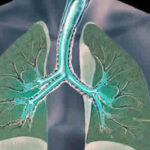 Asthma affects over 15% of Australian Aboriginal people. This is at least 50% higher than in non-indigenous Australians.
Asthma affects over 15% of Australian Aboriginal people. This is at least 50% higher than in non-indigenous Australians.
Researchers at the University of Southern Queensland, in Australia, studied whether Aboriginal people would engage in music lessons to increase their knowledge of asthma and support management of their asthma.
First, the details.
- 40 participants identified as Aborigines and diagnosed asthma participated in a 6-month program.
- Once weekly music lessons using a culturally significant wind instrument, the didgeridoo, for males
- Singing lessons for females
And, the results.
- High school students enthusiastically engaged and had excellent retention in what they considered a most enjoyable program.
- Among the males:
- Forced expiratory volume in 1 second (FEV1; the best measure of asthma severity in childhood) increased between the first and third tests.
- Forced vital capacity (FVC; maximum amount of air a person can expel from the lungs after a maximum inspiration) rose from 79 to 101% — a significant increase.
- Peak expiratory flow (PEF; maximum amount of air a person can expel from the lungs after a maximum inspiration from 68% to 81% — a significant increase.
- Females didn’t show a significant increase for FEV1 or FVC, however PEF increased significantly from 71% to 985
The bottom line?
The authors concluded, “Music has great potential for engaging and thus supporting asthma.”
This study is part of ongoing research designed to evaluate the value of wind instruments in pulmonary disease.
More than a decade ago, it was reported that…
- Panic-fear responses and mood changes were significantly higher in the non-wind players.
- A general health profile suggested that the wind instrumentalists present a significantly better “asthma health” picture, perceiving themselves better able to cope with the disease.
More research as been done with sleep apnea, as covered here.
1/18/11 20:16 JR